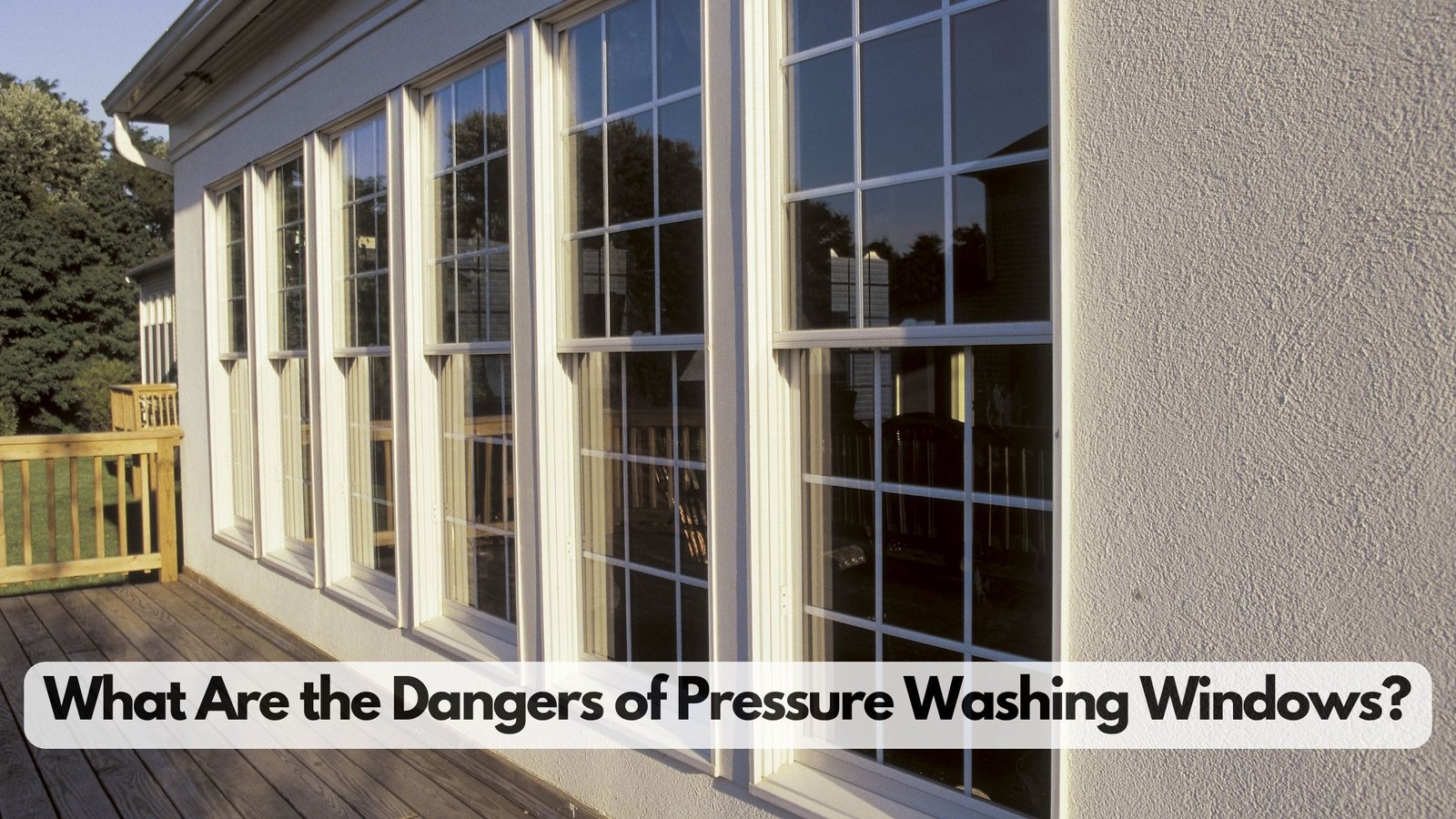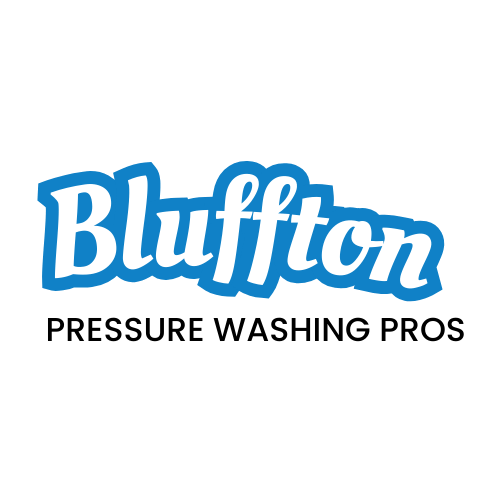
Pressure washing your windows might seem like a quick and efficient cleaning method, but it is not recommended. The risks of window damage are high, and the benefits are limited compared to safer alternatives. Understanding these dangers and exploring better methods can help protect your windows and home.
Is Cleaning Windows with a Pressure Washer Good?
If you’re a homeowner in Bluffton, SC, planning to use a pressure washer to sparkle your dull windows again, read the points below.
1. Risk of Damage:
Pressure washers can easily damage windows. High pressure can shatter glass, break seals, and damage window frames. Incorrect spray targeting and angles can further weaken the glass and force water into the window frame and wall cavities, leading to mold and rot.
2. Minimize Risks:
Manual cleaning methods, such as cloth or sponges, are safer than pressure washing. It will take time but it’s an effective cleaning method.
3. Preparation:
Before starting, remove screens, check for cracks or damage, and cover nearby plants, soil, furniture, and other surfaces to protect them from chemicals and high-pressure water.
4. Technique:
Use the correct ratio of cleaning solution to water. Start at the top of the window and work downward, keeping the nozzle at least three feet away from the glass to prevent damage.
5. Garden Hose:
For a safer alternative, use a garden hose with a gentle spray. Mix soap and water with a cloth or sponge to clean the windows, followed by a rinse with the hose.
Also Read:
Can You Pressure Wash in the Rain?
How Often Should You Pressure Wash Your Driveway?
What Are the Best Ways to Clean Windows?
1. Soap and Water:
Use a mixture of soap and water with a soft cloth or sponge to clean windows. Use a garden hose to rinse the windows.
2. Vinegar Solution:
Apply a mixture of vinegar and water to the window with a sponge or mop, then wipe dry with a rubber-bladed squeegee from top to bottom.
3. Avoid High Pressure:
Do not use a pressure washer. High water pressure can easily damage the windows.
4. Check for Damage:
Before cleaning, inspect windows for cracks, damaged seals, or old caulking to prevent leaks and further damage.
5. Use Proper Tools:
For higher windows, use a sponge mop attached to a pole. Dry with a clean towel to prevent streaks.
Can Pressure Washing Damage Window Seals?
Yes, pressure washing can damage window seals. High-pressure water can break the seals on double-paned windows, leading to moisture and fogging between the glass.
It can also damage caulking and weather stripping around the window frame, causing leaks and water damage inside the home.
Is It Worth Calling a Professional Window Washer?
Yes, calling a professional window cleaner is worth the money. Here are a few reasons why professionals are better at washing windows:
1. Experience and Expertise:
Professionals know the correct techniques to clean the windows while avoiding any kind of damage to the glass and seals.
2. Proper Equipment:
They use the right tools and techniques to ensure safe and effective cleaning of the windows.
3. Safety:
They know how to avoid potential hazards, such as water leaks and broken seals. With the right equipment and training, they can safely clean high and hard-to-reach windows.
4. Time-Saving:
Hiring a professional saves you time and effort, especially for large or hard-to-reach windows. You can do your other important work while our professional makes your windows sparkling again.
5. Prevent Damage:
They can identify and address any pre-existing damage such as weak seals or cracks, and take steps to prevent further damage.
6. Efficiency:
Professionals are highly experienced in window cleaning; they know how to clean windows quickly and effectively.
